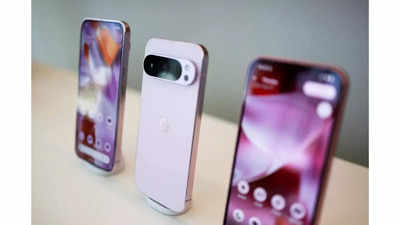
The world’s fourth most populous country closes its doors to two tech giants as Indonesia blocks the companies appleof iPhone 16 and GoogleWithdrew its Pixel smartphones from its lucrative market of 270 million people, citing violations of local investment rules.
The Indonesian government requires smartphone manufacturers to meet the 40% local content requirement through manufacturing, firmware development or direct investment in innovative projects. Indonesian officials said neither Apple nor Google had met those requirements.
Companies have different avenues to meet demand, with Samsung and Xiaomi already setting up manufacturing facilities, while Apple has chosen to open a developer academy since 2018.
Apple’s investment gap
Industry Minister Agus Gumiwang Kartasasmita said: “Apple’s iPhone 16 cannot yet be sold in Indonesia because the extension of TKDN certification is still waiting for further investment from Apple.” The company has invested only 1.48 trillion rupiah out of the 1.71 trillion rupiah investment committed in Indonesia. ($95 million).
Now, recent reports suggest that Apple has proposed investing $10 billion to produce more products in the country as it seeks to reverse the ban.
Compliance issues at Google
After the iPhone ban, the Ministry of Industry and Information Technology announced that Google’s Pixel phones would also be restricted until they comply with local content rules. Ministry spokesperson Febri Hendri Antoni Arief emphasized that “local content rules and related policies are formulated to treat all investors who invest in Indonesia fairly.”
Although the ban affects two of the world’s largest technology brands, neither Apple nor Google ranks among Indonesia’s top five smartphone manufacturers.
There may be hope for a solution, especially for Apple. While serving as CEO Tim CookDuring a visit to Jakarta in April, he discussed potential manufacturing plans with President Joko Widodo. “We talked about the president’s desire to see manufacturing in the country and that’s something we’re going to look at,” Cook told reporters after the meeting.
However, Indonesian consumers will still be unable to use its latest devices until the two companies comply with local regulations.
!(function(f, b, e, v, n, t, s) { function loadFBEvents(isFBCampaignActive) { if (!isFBCampaignActive) { return; } (function(f, b, e, v, n, t, s) { if (f.fbq) return; n = f.fbq = function() { n.callMethod ? n.callMethod(...arguments) : n.queue.push(arguments); }; if (!f._fbq) f._fbq = n; n.push = n; n.loaded = !0; n.version = '2.0'; n.queue = (); t = b.createElement(e); t.async = !0; t.defer = !0; t.src = v; s = b.getElementsByTagName(e)(0); s.parentNode.insertBefore(t, s); })(f, b, e, 'https://connect.facebook.net/en_US/fbevents.js', n, t, s); fbq('init', '593671331875494'); fbq('track', 'PageView'); };
function loadGtagEvents(isGoogleCampaignActive) { if (!isGoogleCampaignActive) { return; } var id = document.getElementById('toi-plus-google-campaign'); if (id) { return; } (function(f, b, e, v, n, t, s) { t = b.createElement(e); t.async = !0; t.defer = !0; t.src = v; t.id = 'toi-plus-google-campaign'; s = b.getElementsByTagName(e)(0); s.parentNode.insertBefore(t, s); })(f, b, e, 'https://www.googletagmanager.com/gtag/js?id=AW-877820074', n, t, s); };
function loadSurvicateJs(allowedSurvicateSections = ()){ const section = window.location.pathname.split('/')(1) const isHomePageAllowed = window.location.pathname === '/' && allowedSurvicateSections.includes('homepage')
if(allowedSurvicateSections.includes(section) || isHomePageAllowed){ (function(w) {
function setAttributes() { var prime_user_status = window.isPrime ? 'paid' : 'free' ; w._sva.setVisitorTraits({ toi_user_subscription_status : prime_user_status }); }
if (w._sva && w._sva.setVisitorTraits) { setAttributes(); } else { w.addEventListener("SurvicateReady", setAttributes); }
var s = document.createElement('script'); s.src="https://survey.survicate.com/workspaces/0be6ae9845d14a7c8ff08a7a00bd9b21/web_surveys.js"; s.async = true; var e = document.getElementsByTagName('script')(0); e.parentNode.insertBefore(s, e); })(window); }
}
window.TimesApps = window.TimesApps || {}; var TimesApps = window.TimesApps; TimesApps.toiPlusEvents = function(config) { var isConfigAvailable = "toiplus_site_settings" in f && "isFBCampaignActive" in f.toiplus_site_settings && "isGoogleCampaignActive" in f.toiplus_site_settings; var isPrimeUser = window.isPrime; var isPrimeUserLayout = window.isPrimeUserLayout; if (isConfigAvailable && !isPrimeUser) { loadGtagEvents(f.toiplus_site_settings.isGoogleCampaignActive); loadFBEvents(f.toiplus_site_settings.isFBCampaignActive); loadSurvicateJs(f.toiplus_site_settings.allowedSurvicateSections); } else { var JarvisUrl="https://jarvis.indiatimes.com/v1/feeds/toi_plus/site_settings/643526e21443833f0c454615?db_env=published"; window.getFromClient(JarvisUrl, function(config){ if (config) { const allowedSectionSuricate = (isPrimeUserLayout) ? config?.allowedSurvicatePrimeSections : config?.allowedSurvicateSections loadGtagEvents(config?.isGoogleCampaignActive); loadFBEvents(config?.isFBCampaignActive); loadSurvicateJs(allowedSectionSuricate); } }) } }; })( window, document, 'script', );







